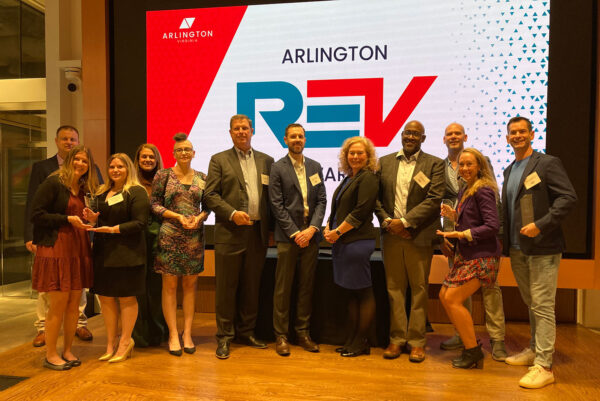This regularly scheduled sponsored Q&A column is written by Eli Tucker, Arlington-based Realtor and Arlington resident. Please submit your questions to him via email for response in future columns. Video summaries of some articles can be found on YouTube on the Ask Eli, Live With Jean playlist. Enjoy!
Question: Is it possible to take over a seller’s existing loan if they have a low interest rate?
Answer: Thank you to our Veterans and Active-Duty military for your service.
In keeping up with the theme of last week’s column, addressing popular mortgage product/strategies, and in honor of Veterans Day, this week I’ll cover assumable VA loans.
An assumable loan is a loan that can be transferred from a seller to a buyer, allowing the buyer to maintain the interest rate of the seller’s existing loan rather than accept a market-rate interest rate. This can be valuable in a high-interest rate environment like we’re in now when most homeowners have an interest rate well below current market rates.
To help me provide the best information about assumable VA loans, I reached out to Skip Clasper of Sandy Spring Bank ([email protected]), who I highly recommend for a range of loan products including VA loans, construction/rehab loans, and jumbo loans.
Only Some Loans Are Assumable
VA loans (available to Veterans, service members and surviving spouses), FHA loans, and USDA loans are the only traditional loan products that are assumable. They make up a relatively small percentage of existing home loans in Arlington (likely single-digit percentage of total loans). I’m not aware of any conventional loans that can be assumed.
Key Details about Assuming a VA Loan
There are some important details and caveats to assuming a VA loan that both buyers and sellers need to understand prior to transferring a loan:
- Buyers do NOT have to be a Veteran or otherwise qualify for a VA loan to assume a VA Loan.
- Sellers can NOT obtain a new VA loan until the previously assumed loan is paid off (or refinanced out of) unless the new buyer is a Veteran and uses their eligibility on the assumed loan.
- It is less expensive (closing costs) to assume a loan than to originate a new loan. The VA Funding fee is only 0.5% for assumable VA loans.
- You need a down payment that covers the gap between the assumable loan balance and the purchase price. For example, if the seller’s loan balance is $200,000 and the purchase price is $500,000, the buyer is assuming $200,000 is debt and will have to cover the remaining $300,000 via down payment or alternative debt such as a second trust.
- Buyers need to qualify for the loan using normal income, debt, and credit guidelines.
As you can probably determine from the above details, there are only a limited number of scenarios where assuming a VA loan makes sense for both parties. The biggest hurdle to VA loan assumption is that the VA loan eligibility stays with the loan so if the buyer does not have their own VA loan eligibility, the seller must be sure they are okay giving up this very valuable benefit until the new buyer pays it off or refinances.
If you’d like to discuss buying, selling, investing, or renting, don’t hesitate to reach out to me at [email protected].
If you’d like a question answered in my weekly column or to discuss buying, selling, renting, or investing, please send an email to [email protected]. To read any of my older posts, visit the blog section of my website at EliResidential.com. Call me directly at (703) 539-2529.
Video summaries of some articles can be found on YouTube on the Ask Eli, Live With Jean playlist.
Eli Tucker is a licensed Realtor in Virginia, Washington DC, and Maryland with RLAH Real Estate, 4040 N Fairfax Dr #10C Arlington VA 22203. (703) 390-9460












